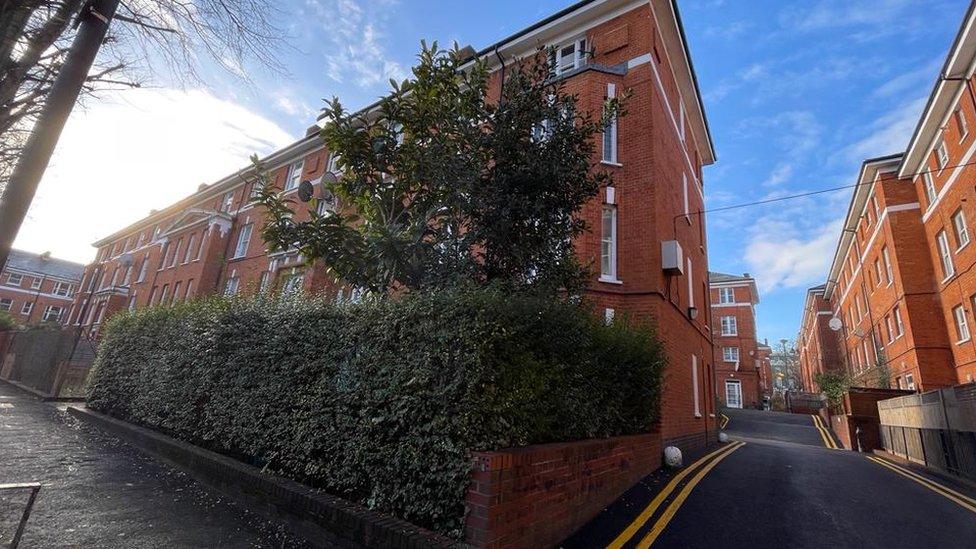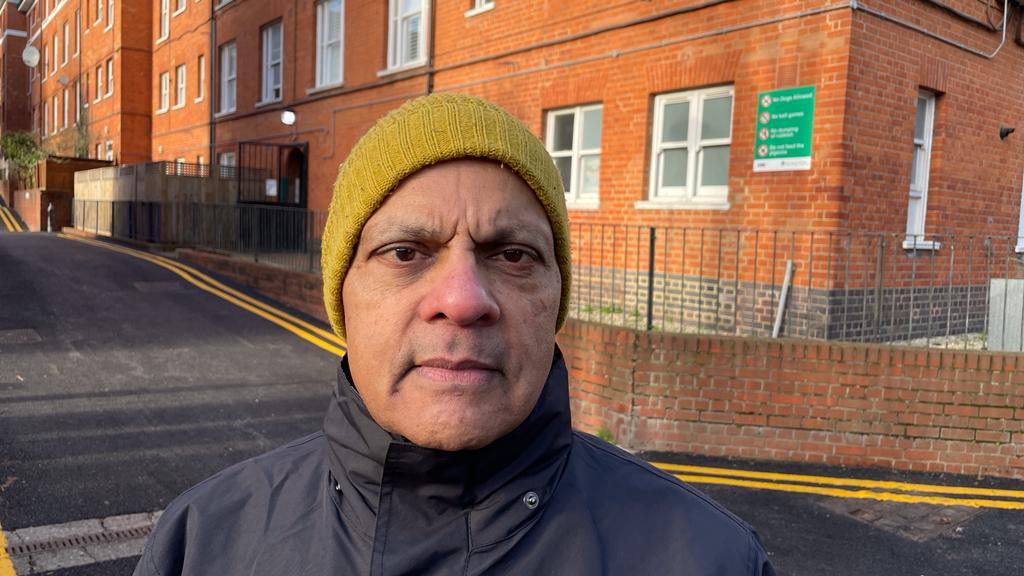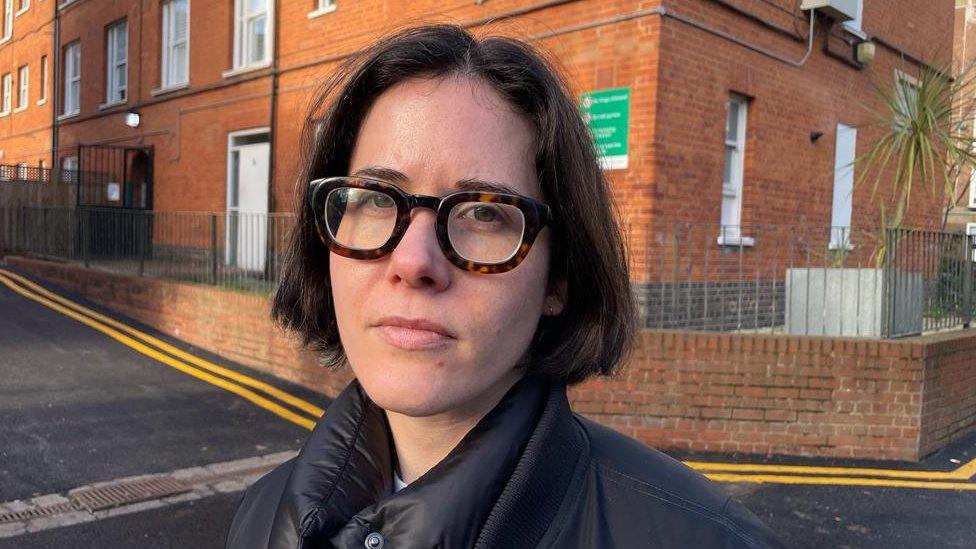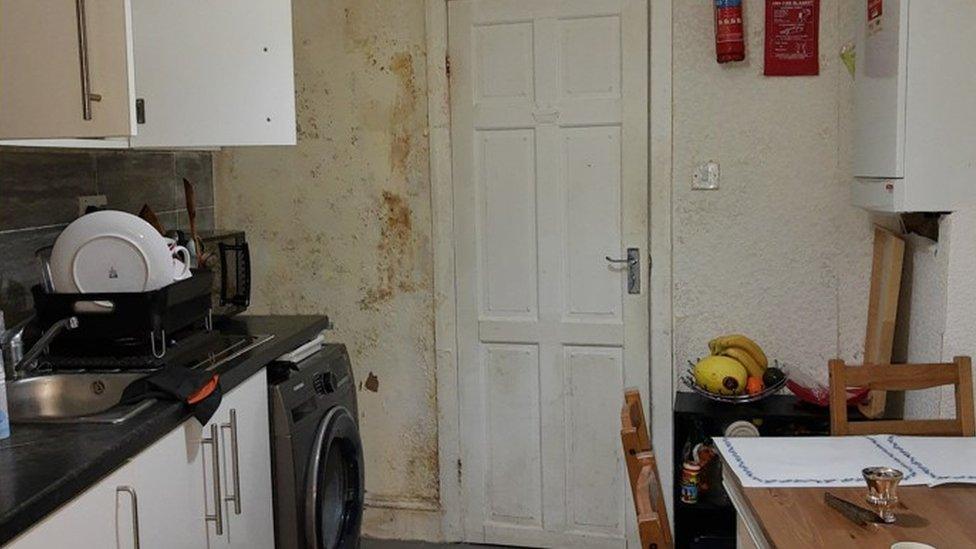London leaseholders face refurbishment bills in thousands despite legal cap
- Published

Residents at Taverner and Peckett Square estate in Islington are being charged £45,000 for major works
Leaseholders living in former council homes are facing refurbishment bills of thousands of pounds, despite a legal cap introduced nine years ago.
Campaigners told the BBC that they were facing bills of up to £65,000, for works they say are not needed.
A £15,000 cap for council refurbishment costs was introduced in 2014 but it is not clear that it has ever been used.
Islington Council said it was committed to mitigating the financial impact of any necessary works.
Leaseholders George Rego and Emma Clark, at Taverner and Peckett Square in Islington, said they had been given estimates of £45,000 and were "sick with worry" at the prospect.
They were told that the funds were for major works on the windows and roof of their estate.
Mr Rego said: "I pay a service charge and I have not seen any work being done on a yearly basis. Only minor work here and there."

George Rego says he does not know how he is expected to have the money to pay for refurbishments
"I'm not even sure how the council expects us to find this sort of money, and I'm retired. Where will I find the money? Maybe the windows do need doing because I think they have been neglected for years.
"Overall I think the estate is well run and clean. They should at least try to spread these costs over various years."
Neighbour Ms Clark said that it was only two months after moving in that she was hit with the "looming dark cloud" of refurbishment bills.
She said: "I'm fully aware with what comes when you buy a leasehold flat, but there just aren't many options in London. There's no way I could've anticipated a cost like this, or I'd never have bought it."
In 2014, 93-year-old leaseholder Florence Bourne was sent a £50,000 bill by Newham Council for roof repairs.
Ms Bourne subsequently died of heart attack. It was reported that she "died of shame", as she had never been indebted and had become depressed.
It later emerged the roof would have lasted another 40 years and the work was unnecessary.

Emma Clark says she would not have bought her flat if she had known about the subsequent costs
As a result the, the coalition government created Florrie's Law, which capped leaseholder charges at £15,000 in London and £10,000 outside the capital.
Despite this, Sebastian O'Kelly, from the Leasehold Knowledge Partnership, a charity campaigning to reduce these costs, said that the cap only applied if central government funds were involved in the refurbishment.
He explained: "That hasn't happened under this government or the coalition. Councils are using their own funding to maintain their buildings and there is no cap on cost."
"The law was a complete damp squib. I'm not aware of one single case in London or outside it that has actually deployed Florrie's Law," he added.
London has the highest number of council leaseholders in the country, Mr O'Kelly said.
He gets two to three calls a day on this matter, with those seeking help facing bills from councils and housing associations ranging from £15,000 to £65,000.
He added: "Private council flats are appealing because they are cheaper than the open market. That is the upside of them.
"The downside is that councils do not have any reserve funds to pay for these major works. Nothing has been built up over the years because most of the tenants are council tenants, not private owners."

Sebastian O'Kelly from the Leasehold Knowledge Partnership says he gets multiple cases of large refurbishment fees a day
He added: "Councils also have long-term maintenance agreements with property companies and so the works cannot go out to tender. There is very little scrutiny of the cost of these works that are proposed.
"Councils do have to maintain their property; it would be thoroughly irresponsible of them not to, and among the social tenants there will be some private leaseholders who will be asked to foot part of the bill. Often we're talking about multimillion-pound refurbishment bills for the entire estate."
Giving advice to leaseholders faced with huge bills, Mr O'Kelly said: "It's possible that with a lawyer's letter and a professional witness of a structural engineer that you can get the costs knocked down a bit as well.
"It is worth doing if you are facing a sort of £65,000 bill, rather than to take the council's word for it. My advice is always challenge these costs, scrutinise them and demand that there is value for money."

Ms Clarke says residents on her estate are rallying together to fight the costs
Councillor Una O'Halloran, Islington's executive housing member, said: "The proposed works at the Taverner and Peckett Square estate are at an early stage, and the costings that have been shown to residents are indicative.
"The rates detailed were consulted on with leaseholders when the council procured its long-term contract with Mears, and have been market tested to demonstrate value for money.
"The works will be subject to a statutory consultation with leaseholders, and we're looking forward to listening carefully to their feedback," she added.
"Leaseholders will only receive a formal invoice for payment once the work is complete and the final costs have been agreed, which we anticipate will be around late 2024 to early 2025."

Follow BBC London on Facebook, external, Twitter , externaland Instagram, external. Send your story ideas to hellobbclondon@bbc.co.uk, external
- Published20 July 2022

- Published16 February 2022

- Published24 January 2023
